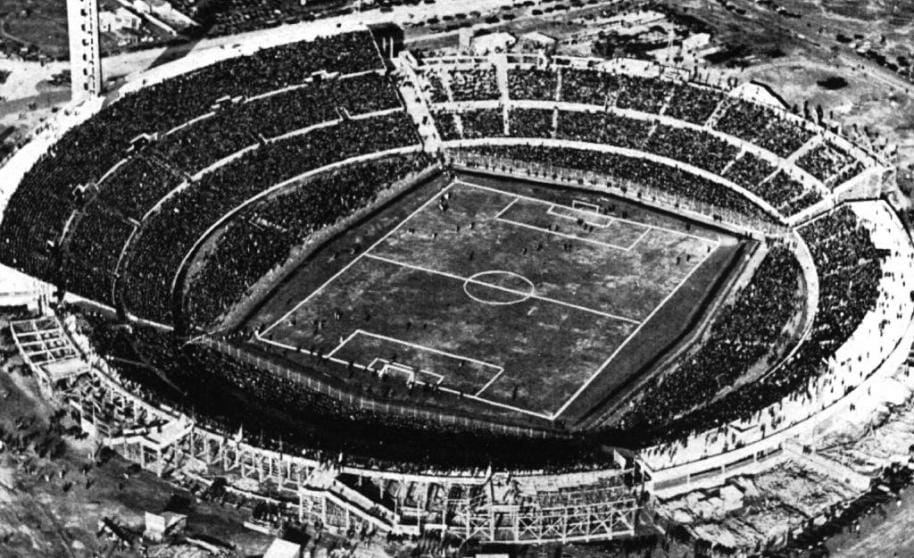
The 1974 FIFA World Cup | A clash of two worlds
Discipline
Event
Date
Country
Length
Winner-Podium
Other protagonists
Year
In over forty years of Cold War, the moments of tension between the United States and the Soviet Union and between the counterposed Western and Eastern Blocs were many. The conflict was not only ideological, political and military, but also encompassed cultural and social areas too. Germany was the focal point of the tension and a clash of two worlds took place where once a united nation had stood. The Federal Republic of Germany (FRG) and the German Democratic Republic (GDR), better known as West and East Germany, were the protagonists of this stand-off. Representing opposing world views, the competition between the countries created in the aftermath of World War II was fierce in many of its aspects. Sport was no exception, with the two often competing for the highest honours in the Olympics or other international competitions.
Yet, when it came to football, the two countries had never faced each other at the senior level. Not until 1974, when both Germanies were placed in Group 1 in the first stage of the FIFA World Cup. At this point, the long-awaited confrontation was inevitable.
A Cold War Football Story
This clash of two worlds took place at the Volksparkstadium in Hamburg on June 22nd 1974. Around 60,000 spectators attended the event. Although both teams had already qualified for the following phase, the match was still charged with political and ideological importance. The two teams were the very mirror of their own countries. Despite being under the influence of the United States, the FRG was a blossoming economic reality. The West Germans (Wessis), the competition hosts, were a team stacked with talents, fielding the likes of Franz Beckenbauer, Gerd Müller, Sepp Maier, Berti Vogts and Paul Breitner. They had already won the European Cup in 1972 and were ready to try to seize another big trophy. They were led by the renowned manager Helmut Schön, an East German from Dresden who had fled to the West in 1950.
The GDR was a much poorer country, under the control of a communist goverment and a faithful vassal of the Soviet Union, but often neglected by it. Victory in sports was used in the country as an indicator of superiority over their more economically advanced western brothers. The East Germans (Ossis), however, were undertaking their very first (and only) participation in the prestigious football tournament. Their team consisted of amateur players inexperienced in international tournaments and unknown to a mainstream football audience.
Shooting Through the Wall
The political pressure was at its highest. As a result, the game was tense and the two teams cautious. Despite their outspoken superiority, on the pitch, the Wessis found themselves facing a well-organized wall of East German players. When they finally managed to get past it, the post denied Müller a goal that would have confirmed the Western supremacy. Nevertheless, as the game approached the end, the West Germans looked content with the draw. A result that would have still allowed them to finish first in their group. For East Germans, however, a draw was equal to a defeat. Finishing second behind their Western brothers meant only shame for their country.
It was under these circumstances that at minute 77′, Erich Hamman suddenly served Jürgen Sparwasser with a long cross. Time stopped for a heartbeat as Sparwasser, who had penetrated unchallenged into the midst of the Western defence, controlled the ball and shot it past Maier to give the Ossis an unforeseen lead. Despite their repeated final attempts, the Wessis did not manage to get past their opponents and restore the balance, eventually losing the game. Against all odds, the Ossis went on to win the clash of two worlds. A game that would have gone down in football history as the only professional match between the divided countries.
Sparwasser’s Legacy
In terms of football, the victory turned out to be useless for East Germany, knocked out in the second phase of the tournament. Instead, the defeat served West Germany well, with the Wessis going on to become world champion for the second time in their history. Despite this, Sparwasser’s goal and the victory in the clash of two worlds remain a timeless moment in the memory of former East Germans. Sparwasser himself once said: “If one day my gravestone simply says ‘Hamburg 74’, everybody will still know who is lying below”.
Tag
Buy a ☕ for Hypercritic






